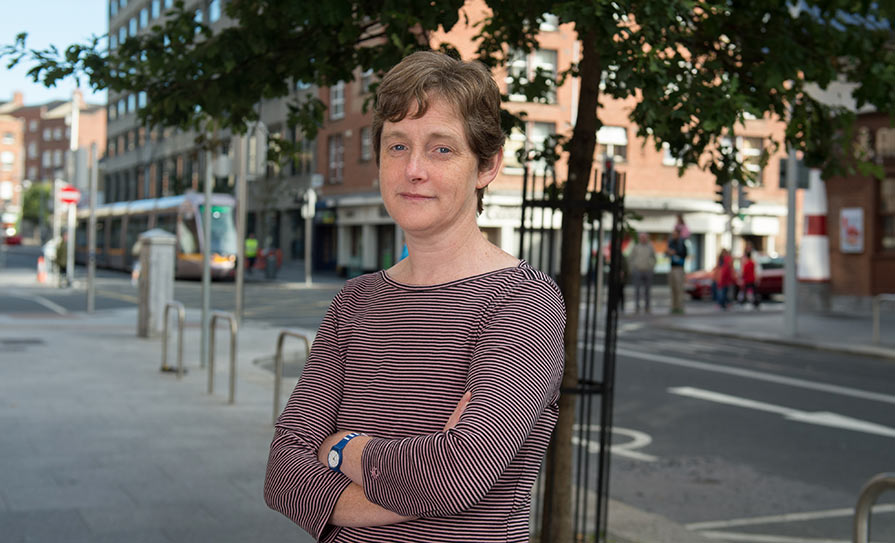The announcement of funding for free hormone replacement therapy, expanded access to assisted human reproduction, and other women’s health initiatives, has received a positive response. Paul Mulholland reports

A dedicated Women’s Health Fund was established as part of the Budget 2021. Allocations from the fund have supported projects across areas such as menopause, fertility, endometriosis, postnatal care hubs, as well as training and awareness for GPs and other healthcare professionals.
In February, a statement from the Department of Health pointed out that investment of €140 million since 2020 has enabled several developments as outlined in the Women’s Health Action Plan 2022-2023.
These have included: The establishment of six menopause clinics; publicly funded assisted human reproduction (AHR) treatment accessed via six regional fertility hubs; the free contraception scheme for women aged 17-31; and 16 of a planned 20 ‘see-and-treat’ ambulatory gynaecology clinics.
However, in its pre-Budget submission, the IMO argued more was required. It pointed out women’s health is not just about contraception and there are waiting lists of up to six months to access specialist menopause clinics. The Organisation called for the establishment of a comprehensive women’s health programme in general practice.
Budget 2025
In terms of healthcare, one of the most noteworthy aspects of Budget 2025 was the €35 million women’s health package. A total of €2 million in new development funding will go towards the continued implementation of the National Maternity Strategy, and will include support for the establishment of additional postnatal care hubs. It also comprises provision of free hormone replacement therapy (HRT) for menopause treatment and expanded access to AHR services.
The initiatives have been welcomed by women’s health advocates.
Regarding HRT, Director of the National Women’s Council (NWC) Ms Orla O’Connor said the funding is reflective of a “significant shift in Irish society in relation to the menopause”.
“HRT can be a game-changer for women who choose to avail of it, offering relief from symptoms of menopause like hot flushes, mood swings, joint pain, and it can even lower the risk of long-term conditions like osteoporosis and heart disease.”
NWC’s Women’s Health Coordinator Ms Doireann Crosson said: “NWC is also welcoming the expansion of the free IVF [in vitro fertilisation] scheme to allow couples with an existing child to access treatment, and to include donor-assisted IVF. These expansions will have a significant positive impact on the lives of those who avail of them. In particular, the inclusion of donor-assisted IVF will be welcome for LGBTQI+ couples.”
IFPA
The Irish Family Planning Association (IFPA) has also welcomed the fact that HRT will be free from January 2025 for all women who are experiencing menopause.
IFPA Medical Director Dr Catriona Henchion described the announcement as “very good news”, noting that it continues the positive trend of progressively reducing the inequitable financial burden women face when paying for reproductive healthcare out-of-pocket.
However, Dr Henchion told the Medical Independent (MI) that more support is required.
“It is regrettable that only the HRT itself is covered by the scheme for now,” she added.
“Women will still have to pay dispensing fees and fees for a consultation with a doctor.”
Overall, however, the IFPA welcomes the scheme’s inclusiveness. Dr Henchion highlighted that many women experience challenging symptoms during menopause, with some facing a significant decline in their quality-of-life as a result.
HRT addresses the deficiency of oestrogen that causes perimenopausal symptoms. The average age of menopause in Ireland is 51 years. However, perimenopause can start at any time from a woman’s late 30s to late 50s and a woman may experience symptoms long after their last period.
“Therefore, it’s very positive that this free HRT scheme is based not on age, but on the experience of symptoms,” Dr Henchion told MI.
“Age-related barriers to free reproductive healthcare are always problematic. For example, the free contraception scheme, which has been transformative for women’s access to a choice of the most effective modern method of contraception, currently includes only 17- to 35-year-olds.”
“The Minister for Health has recently restated his intention that 16-year-olds be included in the scheme.
“This will be a significant improvement for young people who wish to protect themselves from unintended pregnancy. But we need a scheme from which no-one who wishes to use contraception is excluded.
“The IFPA warmly welcomes every additional step towards universal free access to reproductive healthcare: If true gender equality is to be achieved, cost should never be a barrier to access to reproductive healthcare for anyone who needs it.”
Positive
Asked by MI about the impact of the Budget on women’s health, IHCA President Prof Gabrielle Colleran was positive.
Speaking at the Association’s recent Annual Meeting in Co Kilkenny, Prof Colleran said: “It’s great, because women’s health, as we know, was very underserved.”
“Now we have the IVF that’s been offered publicly and the criteria is being widened. We are looking at contraception being provided free-of-charge; we are looking at developments with HRT… these are huge improvements.”
Prof Colleran did note that “we still have a lot of work to do” in regards to the provision of women’s health services in Ireland.
“But to give credit to Minister [for Health Stephen] Donnelly, this has been a priority from him from day one and we’re seeing now the fruits of that in terms of budgetary funding, which is great.”
Menopause awareness
October marks World Menopause Month, raising awareness about the physical, emotional, and social impacts of menopause on women’s lives.
World Menopause Day is held every year on 18 October.
The theme for World Menopause Day 2024 was ‘menopause hormone therapy (MHT)’.
The International Menopause Society (IMS) published a white paper in relation to the theme, titled ‘Menopause and MHT in 2024: Addressing the key controversies’.
The paper stated expanded funding of menopause research is critical to further evaluate the benefits and safety of modern types of MHT and to develop and identify novel treatment options that minimise adverse effects and maximise benefits.
It said a key priority in research is critically evaluating the notion that all types of MHT have an identical impact on menopause-related health issues.
“Globally, there is a critical unmet need for easy access to evidence-based information and safe and effective treatment options for those needing treatment,” according to the white paper.
“Continued progress in the training of healthcare providers and the education of midlife women will optimise not only individual, but also societal, health, and productivity, and reduce the burden of non-communicable diseases which are a major health concern in the 21st Century.
“Advancing menopause care and education globally can also help to dispel misconceptions and lower stigma about menopause and female ageing more generally, and thereby encourage more women to seek the care they need to optimise their health at midlife and beyond,” according to the white paper.
Ireland
In Ireland, a number of events and campaigns were held across the month of October to raise menopause awareness.
Experts on female healthcare gathered at the Royal Marine Hotel in Dún Laoghaire on 13 October to offer insights and advice on hormone health and menopause.
Also, a former Director of Public Prosecutions warned of the potential damage to business if women are forced to leave employment or have their hours cut due to debilitating menopause symptoms.
Ms Claire Loftus said more Irish workplaces need to “catch up” and implement policies to prevent a “brain drain” of highly skilled female staff. She delivered the keynote address on 10 October at the second national Menopause Workplace Excellence Awards, which recognise businesses supporting female employees as they battle symptoms of the condition












Leave a Reply
You must be logged in to post a comment.